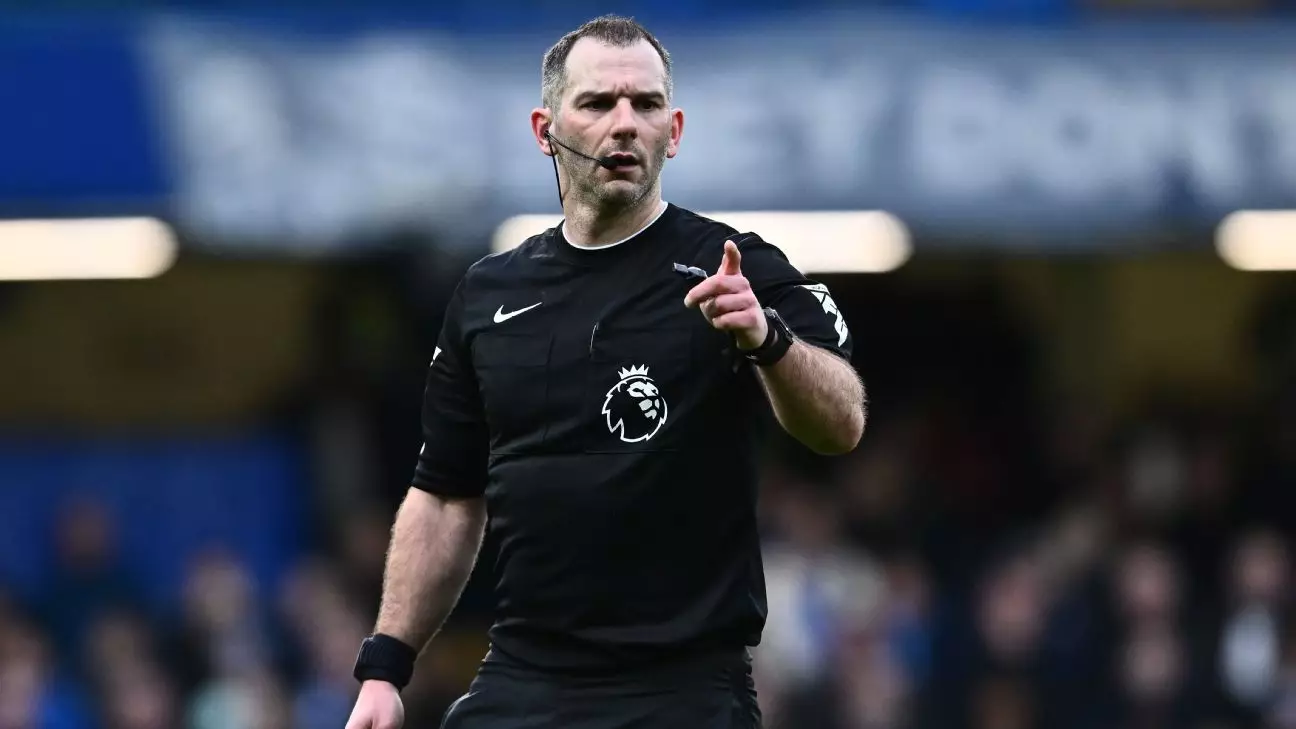The International Football Association Board (IFAB) has made the decision to postpone the introduction of a new blue card as part of trials of sin bins in professional football, according to sources. This comes as a setback to the measures announced in November by football’s lawmakers to improve player behavior and increase respect for match officials. The delay in implementing these trials raises questions about the future of disciplinary actions in the sport.
The IFAB was scheduled to announce the protocols for the trial, including the introduction of the blue card, on Friday. However, this announcement has been pushed back until after the IFAB Annual General Meeting (AGM) on March 2. During the AGM, all proposed trials and law changes will be discussed and approved for use starting from June 1. The delay suggests that there may be further considerations and discussions required before implementing these changes.
FIFA, the governing body of football, clarified its position on the rumored blue card, distancing itself from the reports late on Thursday. The statement released by FIFA stressed that any trials of the blue card should be limited to lower levels of football and conducted responsibly. FIFA plans to reiterate this stance during the IFAB AGM on March 1. The clarification from FIFA raises concerns about the potential effectiveness and suitability of the blue card at elite levels of football.
While the trial for sin bins in higher-level football is delayed, sin bins have already been successfully implemented in lower levels of the sport since the 2019-2020 season. In these leagues, players are temporarily dismissed for 10 minutes if they show disrespect towards officials. This disciplinary action has shown promise in addressing player misconduct and promoting greater respect on the field.
The new trial for higher-level football, which is expected to last at least 12 months, aims to address specific incidents where a player deliberately commits an offense without warranting a red card. An example of such an incident was Italy defender Giorgio Chiellini’s action of dragging back England’s Bukayo Saka by the scruff of his neck during the final of Euro 2020. The intention behind this trial is to deter players from engaging in such actions and protect the integrity of the game.
Grassroots football in England has been grappling with referee abuse from players, leading to the introduction of the yellow card to indicate this offense across 31 leagues since the 2019-2020 season. The trial of sin bins at higher levels of football could serve as a potential solution to combat referee abuse and ensure a safe and respectful environment for all participants.
Even if the trial is approved at the upcoming AGM, fans will not witness the blue card in top-level competitions, including the Premier League, LaLiga, UEFA Champions League, Euro 2024, or the Copa America. The trial over the next season will not be allowed at the highest levels, and it could be as late as 2026-2027 before it becomes part of the Laws of the Game. This delay suggests a cautious approach towards introducing new disciplinary measures in elite football.
Sources indicate that there is limited support for sin bins among top leagues. While the Football Association has the option to test the sin bin system in competitions such as the Women’s Super League and the FA Cup, it is not expected to be widely adopted. This lack of support raises questions about the effectiveness and practicality of sin bins as a disciplinary tool in professional football.
The postponement of the blue card in professional football’s disciplinary trials highlights the complexities and challenges of implementing new measures at the highest levels of the sport. With FIFA clarifying its position and limited support among top leagues, there are doubts about the potential success and widespread adoption of sin bins. It is crucial for stakeholders to thoroughly analyze and evaluate the impact of disciplinary changes to ensure they are effective in promoting fair play and ensuring the well-being of all participants.
